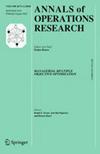Data analytics-based auditing: a case study of fraud detection in the banking context
Abstract
For a long time, decision-making in auditing was limited to a risk-oriented recommendation and consisted of the rigorous analysis of a sample of data. The new trend in the audit decision process focuses on the use of decision support systems (DSSs) founded on data analytics (DA) to better concentrate on in-depth analysis. This study examines how DA can improve the audit decision-making approach in the banking sector. We show that DA techniques can improve the quality of audit decision-making within banks and highlight the advantages associated with mastering these techniques, which results in a more effective and efficient audit of digital banking transactions. We propose an artifact-based data analytics-driven decision support system (DA-DSS) for an automatic fraud detection system supported by DA. The proposed DA-DSS artifact with a random forest classifier at its core is a promising innovation in the field of electronic transaction fraud detection. The results show that the random forest classifier can accurately classify the data generated by this artifact with an accuracy varying from 88 to 93% using transaction data collected from 2021 to 2022. Other classifiers including k-nearest neighbors (KNN) are also used, with a classification rate ranging from 66 to 88% for the same transaction datasets. These results show that the proposed DA-DSS with random forest can significantly improve auditing by reducing the time required for data analysis and increasing the results’ accuracy. Management can use the proposed artifact to enhance and speed up the decision-making process within their organization.


 求助内容:
求助内容: 应助结果提醒方式:
应助结果提醒方式:


